Years after having three abortions, Maria Field suddenly found herself numb, her emotions in disarray at a time she should have been joyful – her recent engagement to be married.
“I didn’t think my past affected me emotionally,” she said. “It took God to show me that this was the wall in my life that I needed to deal with. I needed to work through the loss and find forgiveness and healing.”
Because of her experience, Maria started a licensed family counseling practice specializing in Post Abortion Syndrome, something unrecognized by the medical community that bears striking parallels to Post Traumatic Stress Disorder (PTSD).
Since opening her office in 1995 in West Los Angeles, she’s seen hundreds of patients. Some of them are coming to terms with their decision to abort 40 or even 50 years earlier. Others come to see her immediately after an abortion. Even men can suffer Post Abortion Syndrome because they are participants in initiating life and its deliberate termination.
 “These people experience anxiety, depression, low self esteem, flashbacks and even suicidal thoughts,” Field said. “They have triggers. Sometimes it’s a sound that reminds them of the procedure. Sometimes it’s a song that reminds them of their partner.”
“These people experience anxiety, depression, low self esteem, flashbacks and even suicidal thoughts,” Field said. “They have triggers. Sometimes it’s a sound that reminds them of the procedure. Sometimes it’s a song that reminds them of their partner.”
The syndrome has not been recognized by the Diagnostic and Statistical Manual of Mental Disorders (fifth edition), or DSM-5, but not because it’s a bogus condition concocted by pro-lifers, as the secular media suggest.
Rather, the disorder simply lacks clinical studies in the same way PTSD lacked clinical studies and was not officially recognized immediately following the Vietnam War, Field said. It is hard to find subjects willing to offer themselves as subjects of study, which may re-open painful wounds.
 Typically, women who abort adopt some coping or defense mechanism to suppress the grieving over the loss of a child, Field said. In her own case, her successful busy life, studies and professional career provided her a sufficient cover.
Typically, women who abort adopt some coping or defense mechanism to suppress the grieving over the loss of a child, Field said. In her own case, her successful busy life, studies and professional career provided her a sufficient cover.
She was in denial about what happened. But she stopped going to church with her mom because church made her cry, and she didn’t want her mom, who didn’t know about the abortions, to ask why she was crying, she said.
The coping mechanism worked for 15 years. Then she planned to get married and suddenly a host of long-suppressed emotions surfaced like a boiling cauldron in her heart. At first, she couldn’t figure out what was wrong. But she had studied for her master’s in psychology at Pepperdine University, so she was in tune enough to start connecting the dots.
Eventually, she realized she needed therapy and drove once a week to Newport, the only place she could find a therapist who would deal with the issue.
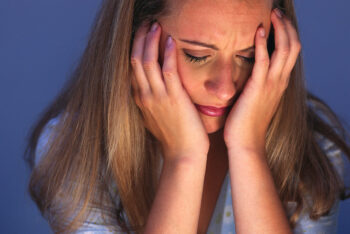 “I realized, ‘Oh my God, this is a big issue!’” she said.
“I realized, ‘Oh my God, this is a big issue!’” she said.
Even among Christians, who supposedly oppose abortion because of the belief it is murder, abortion is prevalent. Young girls feel the shame of an out-of-wedlock pregnancy and think it will be too much burden for them or their family – so they choose the easy way out.
The fetus may be eliminated, but the guilt remains.
Pro-choicers continually pound out the message that there is no shame at having an abortion. They find celebrities who brag about getting an abortion in the morning and sitting down to lunch in the afternoon. Women dress up in vagina costumes to push back against what they see as being shamed.
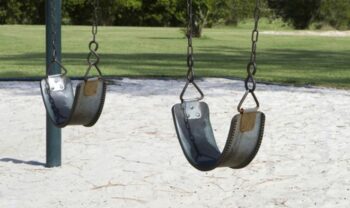 Field said pushing the no-shame narrative may be a coping mechanism to suppress guilt.
Field said pushing the no-shame narrative may be a coping mechanism to suppress guilt.
“I’m always a little bit suspicious when someone says, ‘It hasn’t affected me at all,’” she said. “There’s a lot of people who are absolutely adamant in their stand on abortion. It makes me wonder if that’s their defense mechanism to make themselves feel better.”
Ironically, such defense mechanisms are not the exclusive domain of the pro-choicers. Among the pro-lifers there are those who condemn abortion strongly in attempt to compensate for a choice earlier in life to abort, an emotional response known in psychology as “reaction formation,” Field said.
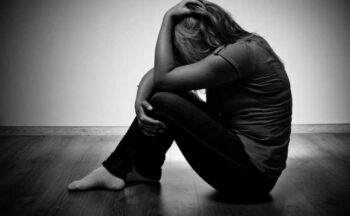 Field avoids the political or ethical terrain of opposing abortion. She only tries to help those who are suffering after getting an abortion. “I care about the individual,” she said.
Field avoids the political or ethical terrain of opposing abortion. She only tries to help those who are suffering after getting an abortion. “I care about the individual,” she said.
As a Christian, Field tries to get God involved in the healing process, not because she pressures others into her faith, but because she believes God can help and speed the healing.
Not every woman who has gone through with an abortion suffers Post Abortion Syndrome, she said.
“It’s like the kid who survived abuse. Why do some kids grow up and become successful, well-adjusted individuals and others grow up with traumas and become drug addicts?” Field said. “But most women have an internal struggle.”
For 16 years, Field has worked with Rachel’s Vineyard, an interdenominational group that stages weekend retreats for women suffering Post Abortion Syndrome. By gathering women in support groups, they can usually help them to start the process of healing.
“To see their faces at the beginning on Friday night and then to see their faces at the end on Sunday, it’s just a miracle,” Field said. “By the time they leave, the majority have experienced a shift. They’re on their way to healing.”
Rachel’s Vineyard was named after Jeremiah 31:15 (NIV): “A voice is heard in Ramah, mourning and great weeping, Rachel weeping for her children and refusing to be comforted because they are no more.” The group is staging 1,000 retreats this year in 48 states and 70 countries.
How do you think your abortion affected you? That’s the question Field would like you to ponder.
If you don’t live in Los Angeles, you can search the Internet for your local crisis pregnancy center to find counseling to help you work through the stages of grief. Or search simply: post abortion syndrome counseling.
“I didn’t think my abortions affected me because I could function,” Field said. “But I had this underlying guilt that I couldn’t get away from.”
Michael Ashcraft pastors the Lighthouse Church in Van Nuys, CA.

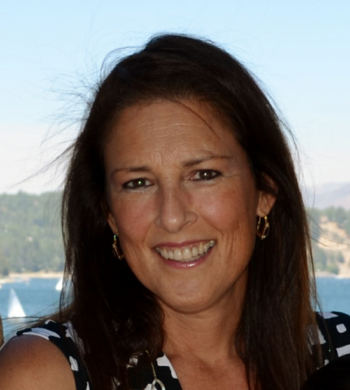

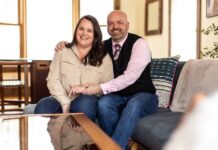

Comments are closed.